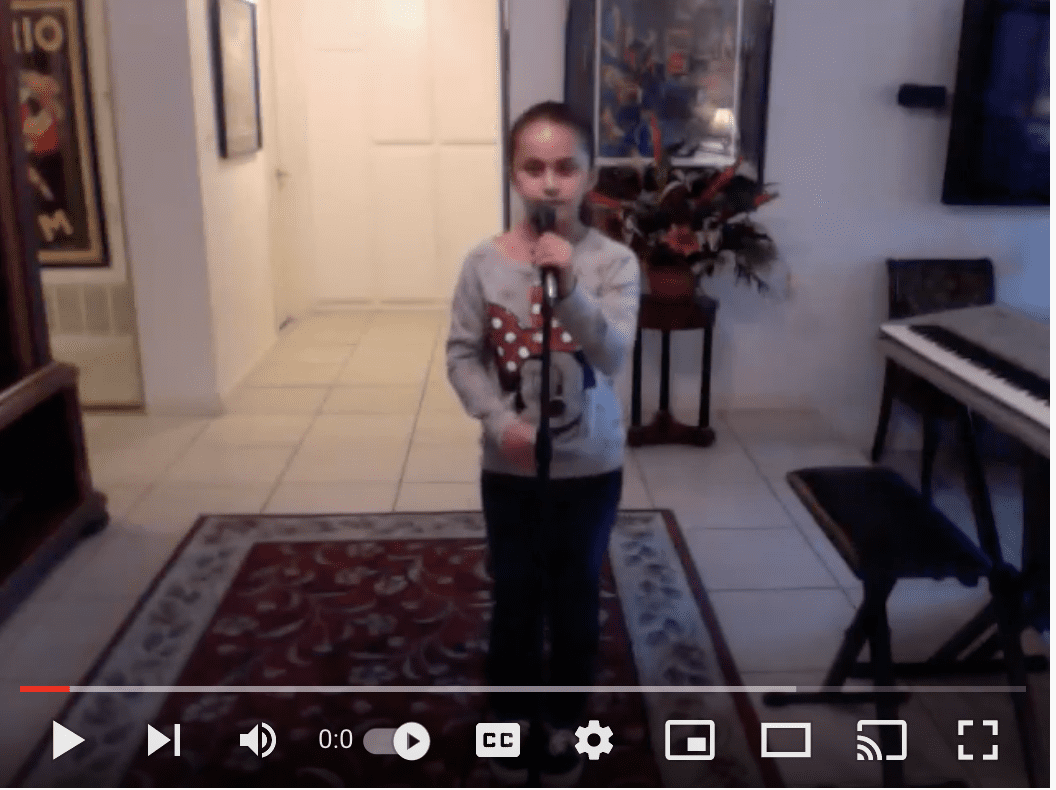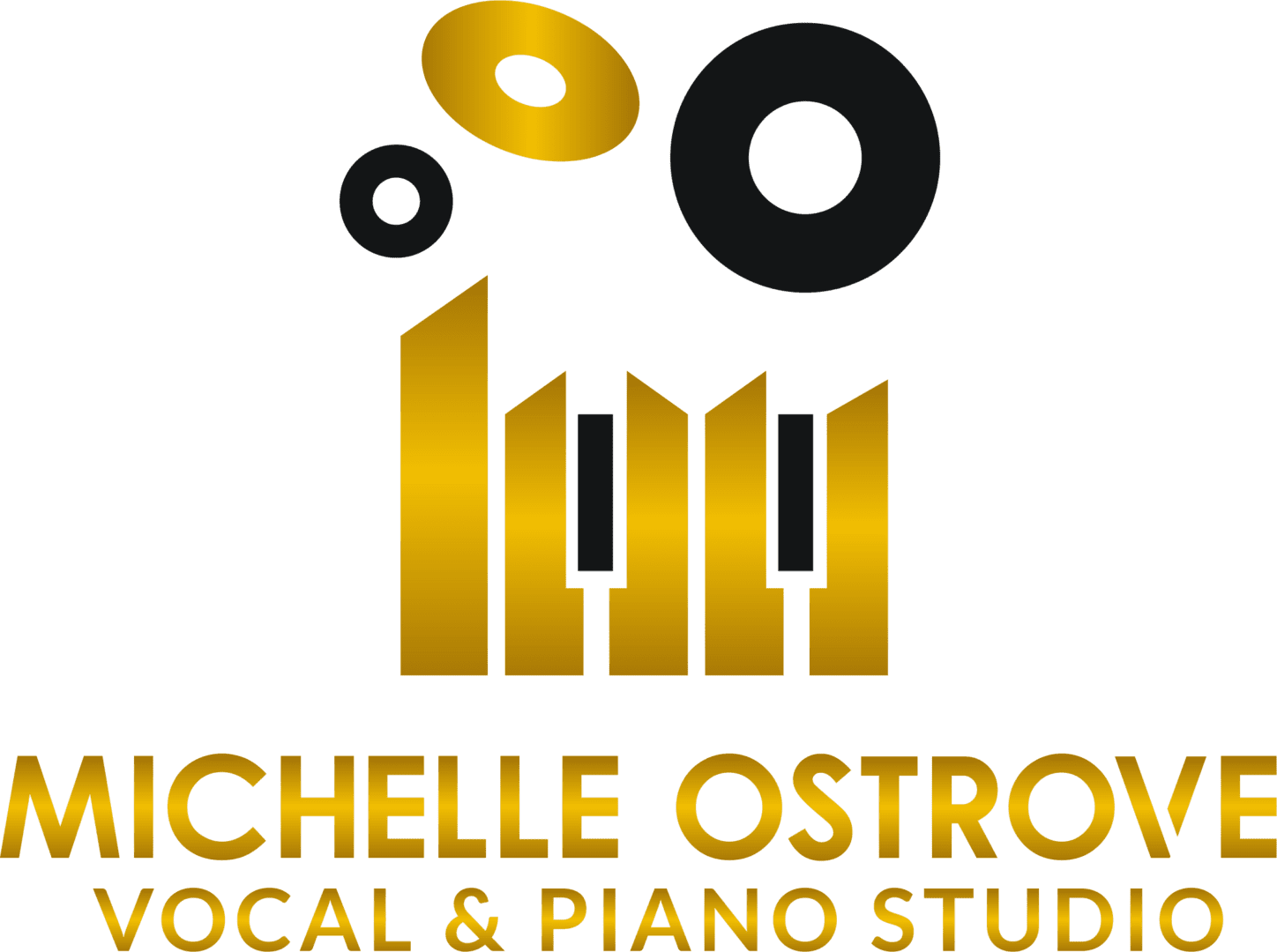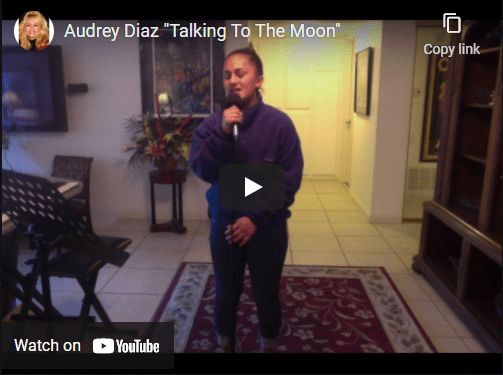Explore the Michelle Ostrove Blog
There are many different ways to describe emphasis on a note. The emphasis can be placed on a word being sung or a note being played on the piano. It seems minor, but the impact of this particular technique will really make a difference in the sound of the performance. In voice lessons you learn about a “Hard Onset” which is attacking the note or putting emphasis in particular places in the lyrics, or to start a song. When playing…
Read MoreEveryone is different, our experiences, emotional makeup, perceptions, upbringing, sensitivity and much more. Even if you grow up in the same household, no one is exactly alike. You may have experienced the same things growing up, but each child will have their own interpretation of things that have happened. As an artist you bring to a song all that is you, whether It’s your voice or playing piano, no one can replicate your inner experiences that will come out as…
Read MoreBREATHING: I’m asked this question often “How do I increase my breath and diaphragm support”? Breathing is so natural and automatic to us; it’s the same with singing. If you were having a conversation with a family member, have you ever thought “should I take a big breath here,” no, you naturally breath in enough air to say something. You subconsciously breath in enough air, it happens naturally; it’s the controlled release that needs to be worked on. Breathing exercises…
Read MoreWhether it is singing or playing the piano, using good technique is a skillful way of executing a song. Technique deals with the concept of tone, musicality and expression in your performance. To sing with emotion and lack technique can result in an unstable sound creating cracks and lack of control. When you learn to sing the correct way, your voice becomes stronger, you will also have vocal control and gain the freedom to express a song exactly the way…
Read MoreThere are a few different reasons why voice problems occur. Vocal cord problems include various symptoms and are mostly caused by abuse and misuse of the singing voice. Overuse of the voice, such as singing incorrectly will cause strain and over time will create vocal cord dysfunction. The singer’s silent assassin is acid reflux (reflux laryngitis, gastroesophageal reflux) basically any type of acid reflux which is stomach acid frequently flowing back into the tube which connects the mouth and stomach.…
Read MoreThe holiday season can be a very stressful time with more traffic, crowds and shopping. Singing or playing the holiday songs on the piano impacts our brain function and our behavior. Voice lessons, piano lessons, or music in general can reduce stress, reduce pain, and reduce symptoms of depressions. Music also improves cognitive function (the way our brain makes connections to remember new things and our reasoning through logic), motor skills, spatial-temporal learning (problem solving) and neurogenesis (brains ability to…
Read MoreThe human voice can be the most expressive instrument, but it can also be very boring! Distinct and unique musical phrasing is essential for a compelling performance. Musical phrasing creates a recognizable and unmistakable quality for a voice. It makes a singer sound better than just singing the words on a page. Do you know what makes a voice distinctly different…phrasing; how a singer SHAPES each line of the song. The combination of tone, pitch, dynamics, diction and more contribute…
Read MoreAll famous singers have a distinct and recognizable voice when they sing. This has to do with their own unique vocal style and sound. A singer molds his voice through practice to create their own signature singing voice. A real musical artist creates his or her own vocal style and image. To create your own unique singing voice is through practice. Work on your sound by mimicking different artist. Sing their songs and try to sing the way they do.…
Read MoreThere are three important elements that will create a real sense of emotion when you are singing or playing the piano. These elements work together to provoke feelings to the listening audience. They can bring a sense of urgency, sadness, happiness or fear in a matter of seconds. The three key elements are crescendos, tempo and quality of tone. Crescendos and decrescendos are all about the sound growing louder or getting softer, which is part of the dynamics of a…
Read MoreHow to naturally amplify your voice from the recent blog (Monday 11/15 “How To Naturally Amplify Your Voice”) discussed the chambers in your body that resonate sound. They are acoustic resonators for your voice along with the larynx and pharynx. Vocal articulators are also used to manipulate the sound as you resonate. All the sounds we make when we sing are the results of muscles contracting, air passing through the vocal tract, and articulators producing the words we sing. We…
Read More








